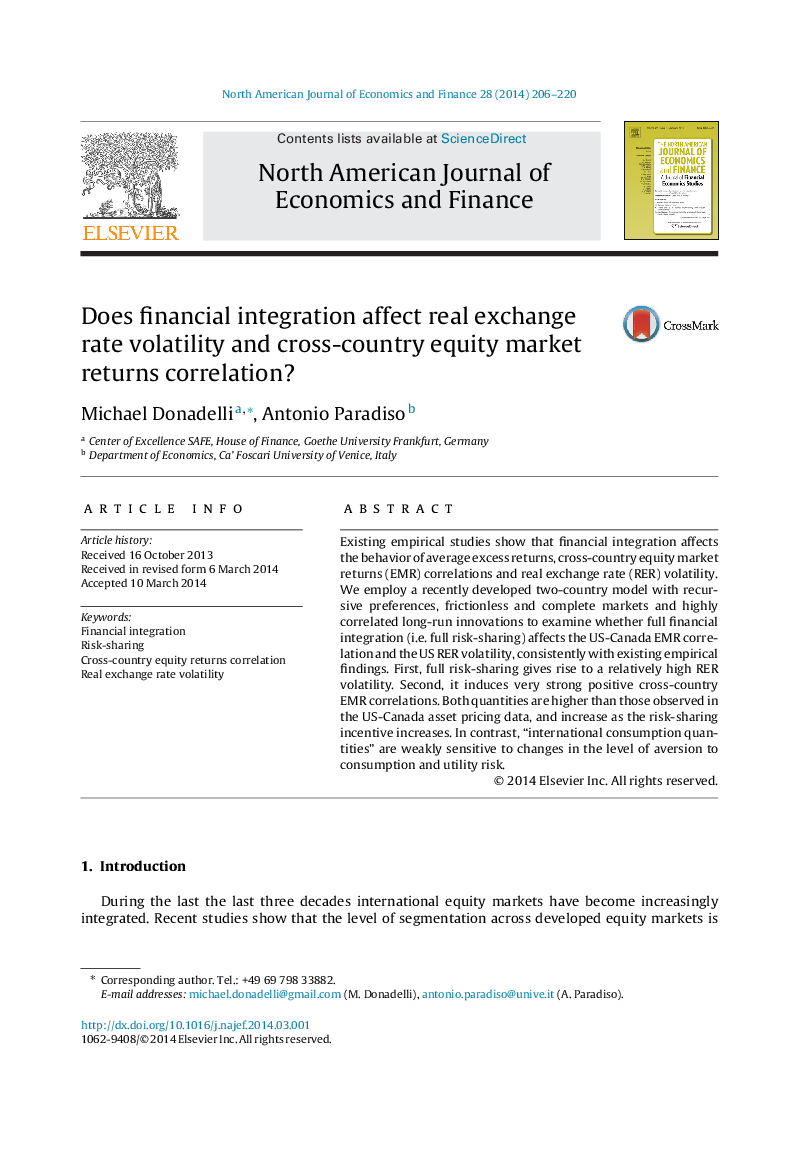| Article ID | Journal | Published Year | Pages | File Type |
|---|---|---|---|---|
| 973336 | The North American Journal of Economics and Finance | 2014 | 15 Pages |
•Full risk-sharing produces a relatively high real exchange rate volatility and a strong positive cross-country equity market returns correlation.•The real exchange rate volatility and the cross-country equity market returns correlation increase as the risk-sharing incentive becomes stronger.•“International consumption quantities” are weakly sensitive to changes in the level of aversion to utility risk.
Existing empirical studies show that financial integration affects the behavior of average excess returns, cross-country equity market returns (EMR) correlations and real exchange rate (RER) volatility. We employ a recently developed two-country model with recursive preferences, frictionless and complete markets and highly correlated long-run innovations to examine whether full financial integration (i.e. full risk-sharing) affects the US-Canada EMR correlation and the US RER volatility, consistently with existing empirical findings. First, full risk-sharing gives rise to a relatively high RER volatility. Second, it induces very strong positive cross-country EMR correlations. Both quantities are higher than those observed in the US-Canada asset pricing data, and increase as the risk-sharing incentive increases. In contrast, “international consumption quantities” are weakly sensitive to changes in the level of aversion to consumption and utility risk.
